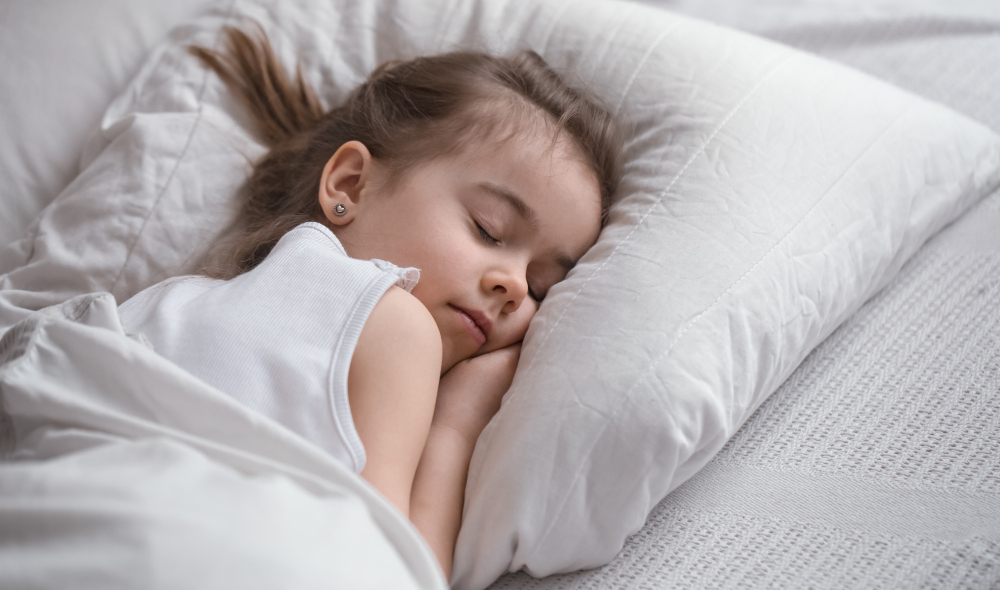Obstructive sleep apnea is when a child stops breathing for a short time while sleeping. It usually occurs due to a blockage in the airway.
Key points about Obstructive Sleep Apnea
- Obstructive sleep apnea is when a child stops breathing for a short time while sleeping. It usually occurs due to a blockage in the airway.
- The most common cause is large tonsils and adenoids in the upper airway.
- Loud snoring or noisy breathing during sleep is the main symptom. Your child may also be restless, sleepy, or hyperactive during the day.
- A sleep study is the best way to diagnose the condition.
- If your child has large tonsils and adenoids, surgical removal may help.
What causes obstructive sleep apnea in children?
Muscles in the head and neck help keep the upper airway open. When a child falls asleep, these muscles tend to relax. This allows the tissues to be folded closer together. If the airway is partially closed while awake, falling asleep can cause the passage to close completely.
In children, the most common cause of such a blockage is enlarged tonsils and adenoids. These glands are located at the back and sides of the throat. They can get very big. Or an infection could cause them to swell. They may then briefly block the airway during sleep.
Obstructive sleep apnea can also be caused by:
- being overweight
- a tumor or growth in the airway
- Certain syndromes or birth defects, such as Down syndrome and Pierre-Robin syndrome
What are the symptoms of obstructive sleep apnea in children?
Symptoms may be slightly different in each child. These may include:
- Loud snoring or noisy breathing (gasping or snoring) while sleeping
- Shortness of breath that usually lasts from a few seconds to a minute
- mouth breathing
- nose voice
- restlessness during sleep
- Too much sleepiness or irritability during the day
- hyperactivity during the day
- behavioral problems
- Sleepwalking or night terrors
- bedwetting
- A need for a nap past the age of napping
- learning problems
- morning headache
The symptoms of obstructive sleep apnea can be like any other health condition. Have your child see their healthcare professional for a diagnosis.

 TR
TR DE
DE RU
RU




